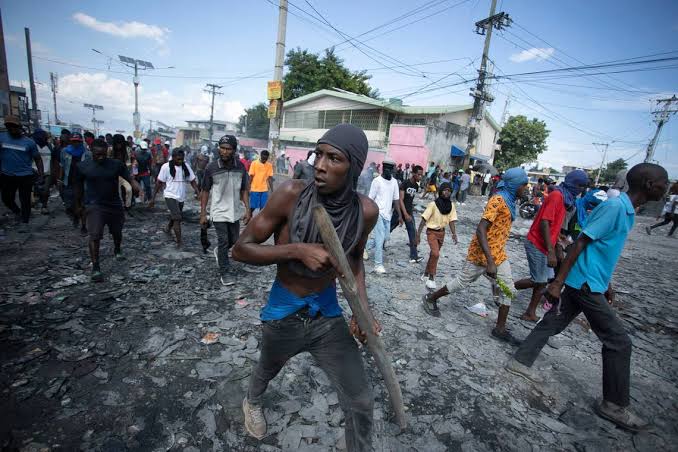Haiti’s crawl to chaos

The Food and Agriculture Organisation of the UN (FAO) and the UN World Food Programme issued a strong warning on Friday that Haiti – not only a Caribbean country, but also a member of Caricom – is facing a disaster that’s been years in the making.
After an Integrated Food Security Phase Classification (IPC) there in 2015, the IPC has been warning of an acute food insecurity situation there.
In August 2021, the deteriorating situation in the country led to demonstrations and a strong police response. President Jean-Charles Moise was murdered in the wake of intense political disagreements.
A month later, the country experienced a 7.2 magnitude earthquake.
That was just one of a long run of natural disasters, including a crippling magnitude seven earthquake in 2010 and hurricanes in 2012 and 2016 that left hundreds of thousands homeless.
The FAO reports that out of Haiti’s population of 11.4 million, 4.7 million people are facing acute hunger, including 1.8 million people in emergency phase and, for the first time, 19,000 people in catastrophe phase. Particularly hard hit are the residents of the Cité Soleil slum in Port-au-Prince, estimated to be home to up to 400,000 Haitians who live in extreme poverty. One in five children there suffers from acute malnutrition.
Haiti confronts a perfect storm of political and economic disaster that will massively handicap efforts at recovery. Emerging from covid19 restrictions, fuel costs are high, and the country imports 50 per cent of its food.
Violent clashes with protesters in several cities in Haiti on Monday led Prime Minister Ariel Henry to call for foreign assistance. UN secretary-general Antonio Guterres urged deployment of an international armed force to the troubled country. But guns raised against desperate citizens won’t solve this problem.
Haiti needs water, food and structured interventions to restore civil society and the rule of law and meet its people’s basic needs. Caricom must play a role in that initiative.
Over the last 60 years, Haiti has received more than US$20 billion in aid that has not made a difference to most citizens and has often made the situation worse. International aid efforts must acknowledge that almost complete failure of development aid. The country is now described as an “aid state,” a country surviving on handouts from international support agencies.
Sustainable, collaborative planning must bridge the gap between the failures of the past and what Haitians want for their country.
The second country in this hemisphere after the US to break the chains of colonialism, and the first republic led by people of colour, Haiti has been made to pay for its people’s courage ever since.
Even now, appallingly, even Trinidad and Tobago and its other neighbours are barely aware of the scale of the suffering it faces.
Simply saying, as usual on such occasions, “Haiti, we’re sorry,” is not enough




